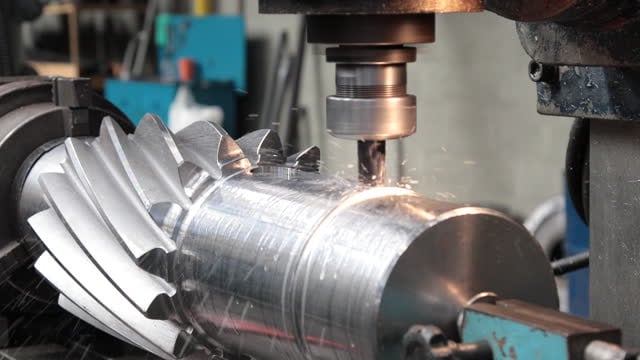The Importance of Custom Machining Parts in Manufacturing
Custom machining parts play a crucial role in various industries, including manufacturing, automotive, aerospace, and more. These parts are specifically designed and manufactured to meet the unique requirements of different applications. Whether you need precision components, prototypes, or replacements for existing machinery, custom machining parts offer a reliable solution. In this article, we will explore the different aspects and benefits of custom machining parts.
What Are Custom Machining Parts?
Custom machining parts are components that are manufactured using advanced machining techniques, such as CNC (Computer Numerical Control) machining. These parts are typically made from high-quality materials, such as metal alloys or plastics, and are customized to fit specific dimensions, tolerances, and functional requirements. Unlike off-the-shelf parts, custom machining parts are tailored to the exact specifications provided by the client.
The Advantages of Custom Machining Parts
Custom machining parts offer several advantages over standard, mass-produced parts. Firstly, they provide a higher level of precision and accuracy, ensuring optimal performance and functionality. Additionally, custom machining parts can be manufactured in small quantities, making them cost-effective for businesses with unique or specialized needs. Moreover, the ability to customize these parts allows for greater flexibility in design and functionality, resulting in improved efficiency and performance.
Applications of Custom Machining Parts
Custom machining parts find applications in a wide range of industries. They are commonly used in manufacturing machinery and equipment, where precision and durability are critical. These parts are also essential in the automotive industry, where they are used in engines, transmissions, suspension systems, and more. In the aerospace sector, custom machining parts are vital for aircraft components, ensuring safety and reliability. Other industries, such as electronics, medical equipment, and energy, also rely on custom machining parts for their specific needs.
The Custom Machining Process
The custom machining process involves several steps to ensure the production of high-quality parts. It begins with the client providing detailed specifications, including dimensions, materials, and any other specific requirements. The next step is the design phase, where engineers and designers create a digital model of the part using specialized software. Once the design is finalized, it is sent to the machining equipment, which uses computer-controlled tools to shape and cut the material to the exact specifications. After machining, the parts undergo thorough inspection and quality control to ensure they meet the required standards.
Common Materials Used for Custom Machining Parts
Custom machining parts can be made from a variety of materials, depending on the specific application and requirements. Some common materials used include:
- Steel: Known for its strength and durability, steel is widely used in custom machining parts.
- Aluminum: Lightweight and corrosion-resistant, aluminum is popular for aerospace and automotive applications.
- Brass: With its excellent conductivity and low friction properties, brass is often used in electrical components.
- Plastics: Various plastics, such as ABS, nylon, and polycarbonate, are used for their versatility and cost-effectiveness.
The Role of Custom Machining Parts in Innovation
Custom machining parts play a vital role in driving innovation across industries. By offering the ability to create unique and customized components, businesses can push the boundaries of what is possible. This allows for the development of new products, improved performance, and enhanced efficiency. Custom machining parts enable engineers and designers to bring their ideas to life, leading to advancements in technology and overall industry growth.
Choosing a Reliable Custom Machining Parts Supplier
When it comes to custom machining parts, it is essential to choose a reputable and reliable supplier. Look for a company with a proven track record in delivering high-quality parts and meeting strict deadlines. Ensure that the supplier has the necessary certifications and employs skilled professionals who are knowledgeable in the machining process. Additionally, consider their customer service and communication capabilities to ensure a smooth and collaborative experience throughout the project.
The Future of Custom Machining Parts
As technology continues to advance, the future of custom machining parts looks promising. With the advent of additive manufacturing, also known as 3D printing, the possibilities for customization and rapid prototyping are expanding. This revolutionary technology allows for the creation of complex and intricate parts with reduced lead times and costs. The integration of AI (Artificial Intelligence) and automation in the machining process is also expected to enhance efficiency and precision further, making custom machining parts even more accessible and beneficial.

